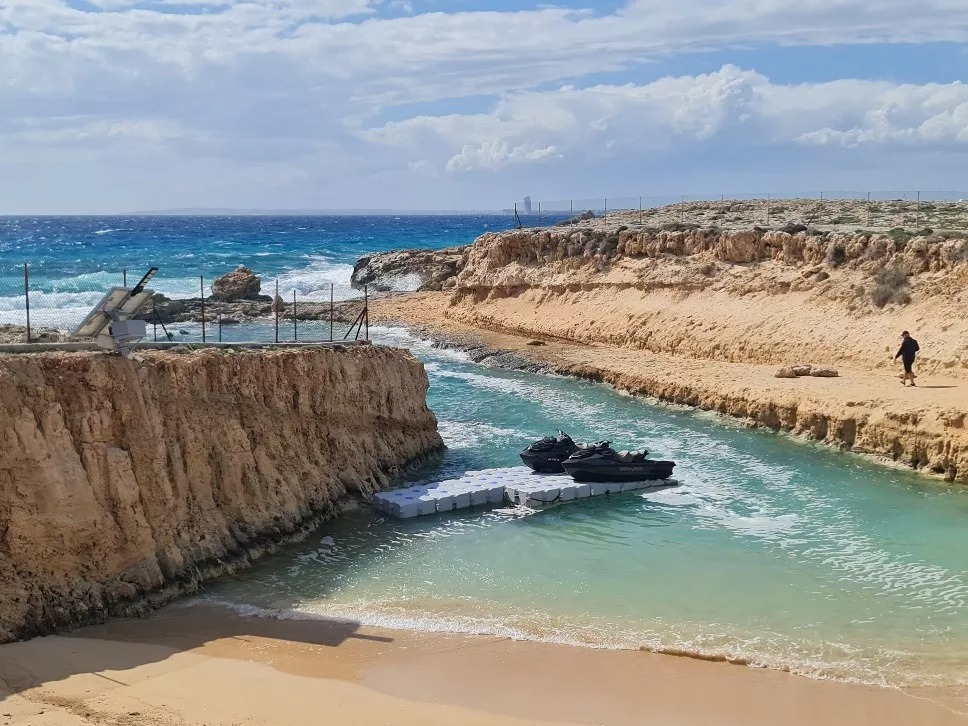The Department of Environment modified the legally binding terms of its initial Report on Cape Greco, specifically for the area “Ammos tou Kampouri,” by increasing the building coefficient, the number of floors, and building height without substantiating its decision with new scientific data.
This is revealed in a report by the Audit Office regarding the cumulative impacts of existing or planned and potential developments in the area.
The report states that instead of providing evidence, the Department of Environment “generally and vaguely cited as the main reason for its revision motives that had been approved by the Council of Ministers and would apply to future developments.”
The report also notes that the Department of Environment did not consider the official proposal of the Fisheries Department to expand the “Cape Greco SPA” in order to protect the priority species Monachus monachus (Mediterranean monk seal) reproducing in the area.
The Auditor General urges the Environmental Authority to seriously reconsider the issue and evaluate whether its decision is substantiated by environmental terms or whether it should be revoked.
Additionally, the following points are noted in the report:
Although the coastal strip between Kermia – Ammos tou Kampouri was added in 2015 to the “Cape Greco SPA” as a compensation measure for the irreversible loss of Charadrius leschenaultii habitats in the neighboring SPA of Ayia Thekla, within the provisions of Article 6.4 of the Habitats Directive, monitoring so far at Cape Greco shows extremely low populations of this species in that part of the SPA, with no apparent increasing trend. Therefore, the Department of Environment and the Game and Fauna Service (GFS), as the competent Authorities, have a legal obligation to take into account and take action, based on the Precautionary Principle, especially since the area was included in the Natura 2000 Network as a compensatory measure.
The Ayia Napa Political Declaration of 2017 was not subjected to a Strategic Environmental Assessment process, nor to an EIA process, in violation of the provisions of Directive 2001/42/EC concerning the assessment of the environmental impacts of certain plans and programs (“Strategic Environmental Assessment Directive”) and the Habitats Directive.
The Environmental Department’s Cumulative Impact Reports (initial and supplementary) for Cape Greco do not meet the EIA criteria under Article 6.3 of the Habitats Directive, as they do not contain the necessary information to prove beyond reasonable scientific doubt the absence of impacts of the proposed projects on the relevant protected site. Also, the above Reports do not take into account recent existing environmental elements concerning the significance of the coastal and marine area for the priority species Monachus monachus, where there may be direct and indirect pressures.
The report also records the following:
“Based on the above, we believe that the Environmental Authority should seriously reconsider the issue and evaluate whether its decision is substantiated by environmental terms or whether it should be revoked. Furthermore, given the poor conservation status of Charadrius leschenaultii in the Republic of Cyprus, which cumulatively faces excessive negative pressures, the preparation of an action plan, at national level, would significantly contribute to setting conservation objectives and coordinating protection and restoration actions for the species and its habitats.”






